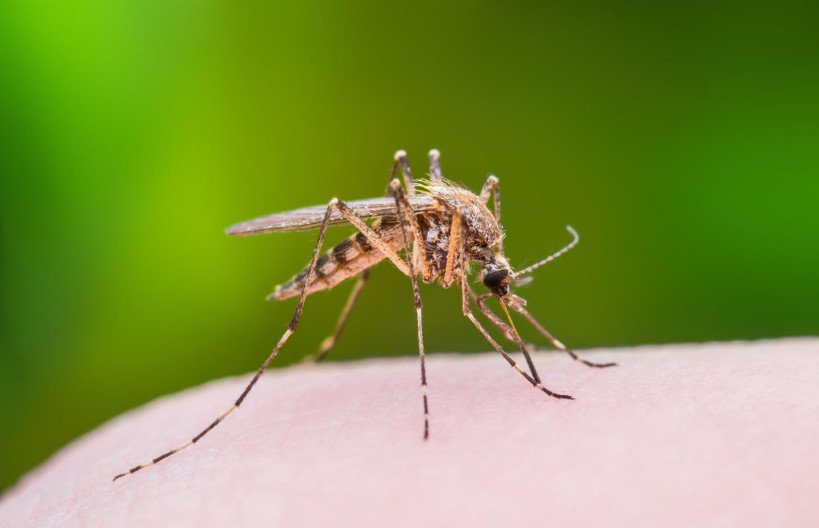I never thought I would write about mosquitoes. But life forced me. A few years ago I settled in a place that is famous for its mosquitoes – the area is swampy. I was met by hordes of squeaking bloodsuckers in a foreign house – that’s when it turned out that I, a city dweller, was allergic to their bites. Since then, my summer days have been spent in a relentless struggle not only with weeds, but also with mosquitoes.
In recent years, I have managed to try a lot of repellents and realized that I do not want to constantly spray with chemicals at all. So natural remedies began to appear in my arsenal. Therefore, I decided to conduct an impromptu testing over the weekend and choose from a variety of the most effective ways to protect against mosquitoes. And now I’m sharing with you the results of my extreme experience.
Baby cream and vanillin
The first remedy is a mixture of “Baby cream” and vanillin. I had the most ordinary cream, vanilla too – but the effect of this mixture turned out to be a pleasant surprise. But about everything in order.
Initially, this method seemed to me one of the most controversial: it did not fit in my head that vanillin could scare away mosquitoes. It turned out that it can! I squeezed out half of the tube into a pre-prepared container and poured out a bag of vanilla, mixed everything.
The mosquitoes didn’t even try to sit on my hands, which I smeared with the mixture – either really because of the smell of vanilla, or because of the viscous consistency of the cream. By the way, the latter in my understanding was a big minus. I’ve been sticky all day, picking through the trash. The feeling is not pleasant. But mosquitoes are really afraid of him. So in general, I can say that the tool works. Alternatively, you can try diluting vanilla in water. This liquid should be sprayed on exposed areas of the body and on clothing. The method also turned out to be effective, but the smell of vanillin quickly disappears, and mosquitoes begin to bite. The cream lasts longer.
Shampoo, vinegar and vegetable oil
To prepare this product, you need to mix shampoo, vegetable oil and vinegar in equal parts.
I found a lot of positive reviews on the web, I don’t like this mixture at all. Among the advantages: easy to prepare, easy to apply, does not stick and absorbs quickly. Cons: the first bite of the mosquito occurred in the leg, which was smeared with the remedy, the subsequent ones too. And five minutes later I walked away from the strawberry beds, as I risked being eaten to death. Also, this mixture is not very pleasant to apply to the face: vinegar vapors sting the eyes in the first moments.
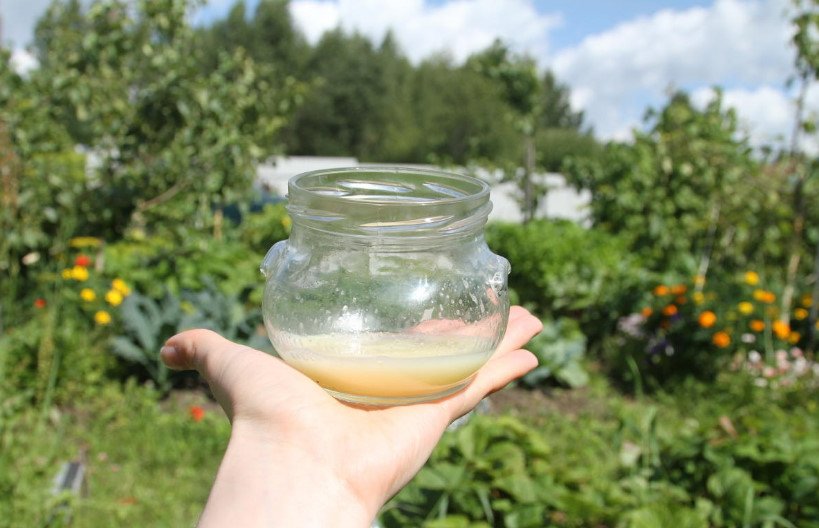
I don’t know: maybe the shampoo wasn’t from mosquitoes or something special, but I didn’t admire this repellent mixture. By the way, I used the most ordinary shampoo, but if you are puzzled, you can find a shampoo on a natural basis.
Essential oils
On a country plot I tested three: tea tree, carnation and eucalyptus. I must say that I do not recommend rubbing oil. In large quantities, they can cause an allergic reaction. And it is better not to use it for small children.
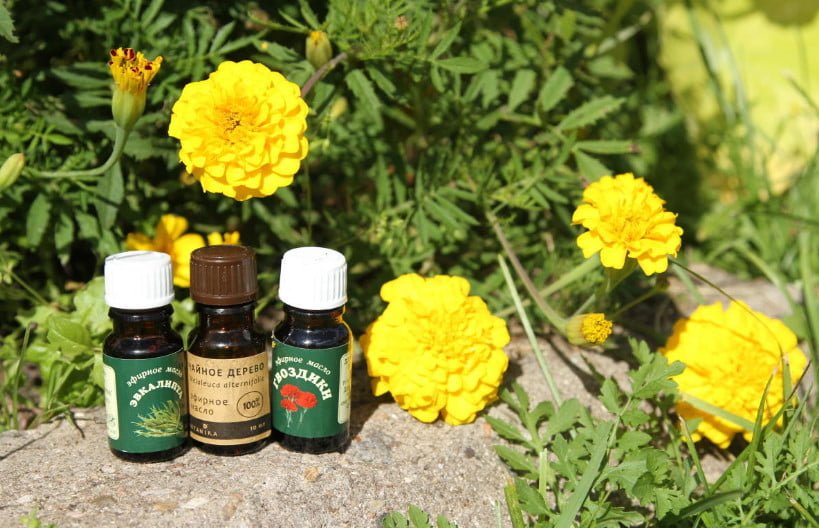
Some summer residents advise dripping a little oil on a T-shirt or trousers. This is the first thing I tried. Unfortunately, this method did not pay off. Mosquitoes diligently flew around the “marked” places and happily dug into all other parts of the body. For myself, I found the only successful way to use essential oils – an aroma lamp. Of course, in this case it is not about protecting yourself in a greenhouse or in the garden beds, but about saving yourself in a country house or gazebo (which is also very important). I note that this tool works better indoors. You need to light a candle in an aroma lamp, pour a teaspoon of water on the bottom and drip oil (5-10 drops are enough). You can use only one type of essential oil or prepare a mixture by selecting different flavors. If there are a lot of mosquitoes in the room, try not to add water – then the evaporation will be more concentrated, and the insects will leave the occupied territories much faster.
Lemon and clove
The trick of the aroma lamp should be supplemented in an equally effective way with lemon. You will need lemon and cloves. Cut the lemon in half, cut off the tails from the halves so that they stand flat on the table, and stick dry buds into the juicy pulp. I liked the mixture of lemon and clove aromas, although the smell is not intense. Or so it seemed to me, because before that I had already tried essential oils in another room.
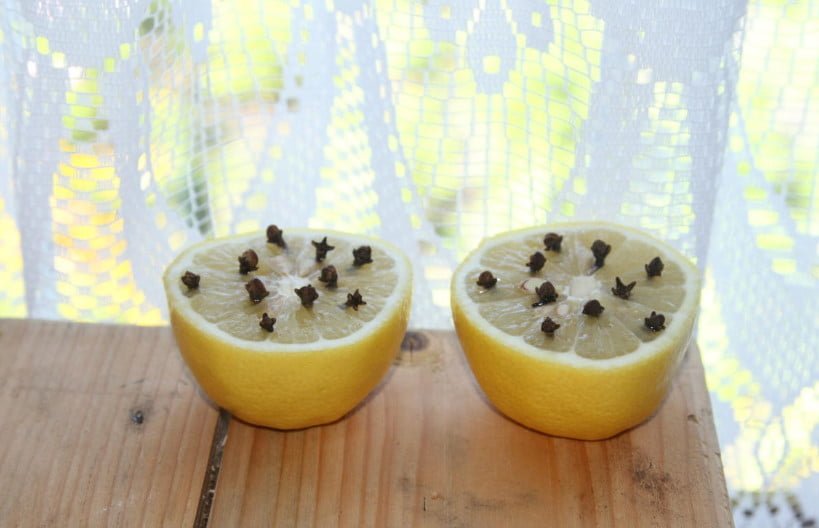
This mosquito repeller is convenient to install at night next to the bed – unlike the aroma lamp, it does not have a strong smell and will not irritate during sleep. And don’t be afraid that you will accidentally burn down the house – there is no fire there. This tool also helps well, despite the simplicity of manufacturing. But again with the caveat that the room should be small and closed. And because of the heat, the lemon dried up a little quickly and the smell became weaker — this is a minus.
Wormwood and tansy
Then my testing moved to an apartment – the weekend was coming to an end, and it was time to go home. Wormwood and tansy are also included in the list of folk remedies for mosquitoes. Both the plants themselves and the essential oil from them are used.
Very often on the Internet there are tips for repelling insects with wormwood oil. But I could not evaluate the effectiveness of this repellent, since it was difficult to find it. In pharmacies where all other essential oils were purchased, it is not for sale.
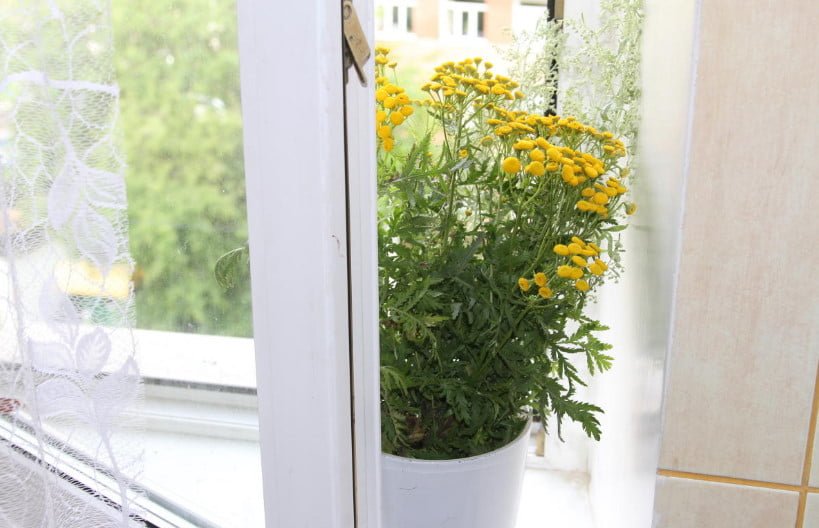
For the experiment, I used ordinary wormwood and tansy from the nearest field. He kneaded the leaves and stems a little to enhance the aroma emanating from them, and put them in a vase on the window. The result is zero! It was a failure. As mosquitoes flew into the window, they continued to fly, only a little slower, probably they saw the bouquet on display. I think this advice from the Internet is useless.
The tomato leaves
And last resort: tomato leaves. When you enter a greenhouse with tomatoes, you always feel the characteristic smell of their leaves, especially if you accidentally touch them. By the way, I really like this fragrance – it’s from the time when I was a little kid sneaking into my grandfather’s greenhouse to see if the first tomatoes were ripe.
The first method is with tomato leaves: they need to be kneaded a little and put on the windowsill. I confirm that this is an effective measure not only against mosquitoes, but also against other flying insects that usually fly out into the light in the evening and get stuffed into the room. The question is where to get the right amount of tomato leaves. Do not pull out all the plants in the greenhouse!
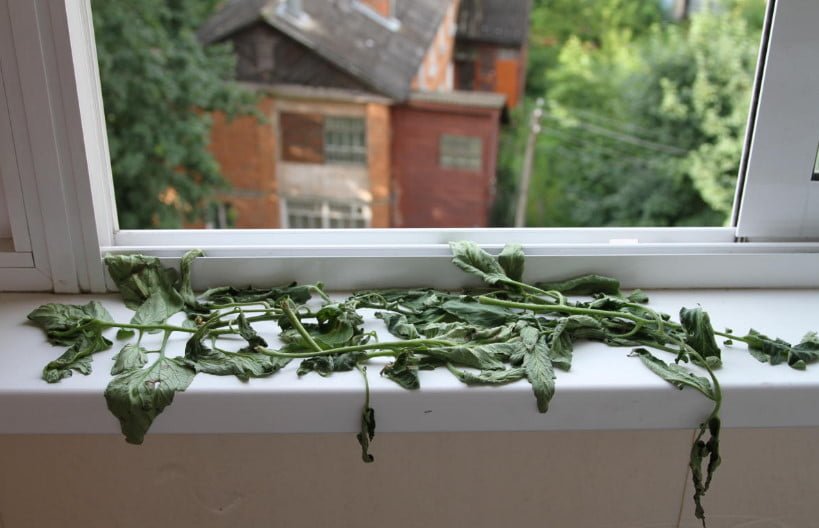
The second method: chop the leaves and smear the released juice on clothes and skin. He immediately caused me confusion. I understand that the person who advised tomatoes was seen only in the store and did not contact them anymore. If it were otherwise, he would surely know that the juice of tomato leaves causes irritation on the skin and stains on clothes. But for the sake of experiment, I still tried to put juice on my hand. It took a few minutes to confirm my point of view. Burning, itching, redness–I just couldn’t wait to get it off my hands as soon as possible.
The results of my testing
First place: undoubtedly, cream with vanilla. If only it wasn’t sticky…
Second place: essential oils. It helps to disperse mosquitoes well in a country house or gazebo.
Third place: lemon with cloves/tomato leaves. Very simple and surprisingly effective techniques. Lemon with cloves is ideal for a city apartment: it looks beautiful and repels mosquitoes well.
Due to the ineffectiveness of the vote, I discarded a remedy with shampoo and wormwood with tansy — they did not work on my local mosquitoes. I admit, after reading the reviews, I had high hopes for a shampoo mixture. But, alas…
and what natural mosquito repellent do you use? Let’s share our experience.
